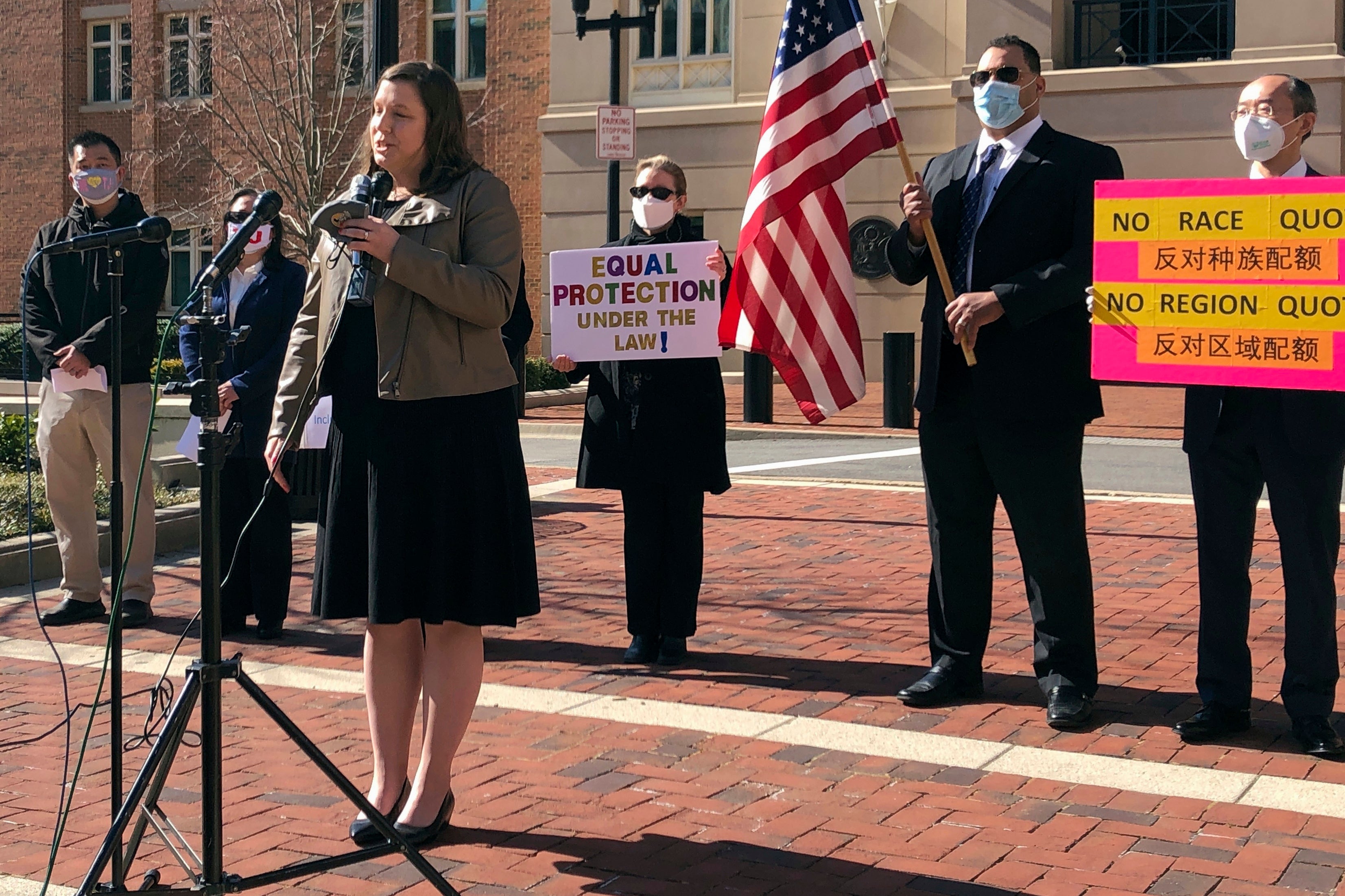Appeals court upholds admissions policy at elite Virginia high school
A divided federal appeals court has upheld the constitutionality of a new admissions policy at an elite Virginia high school that critics say discriminates against Asian Americans

Your support helps us to tell the story
From reproductive rights to climate change to Big Tech, The Independent is on the ground when the story is developing. Whether it's investigating the financials of Elon Musk's pro-Trump PAC or producing our latest documentary, 'The A Word', which shines a light on the American women fighting for reproductive rights, we know how important it is to parse out the facts from the messaging.
At such a critical moment in US history, we need reporters on the ground. Your donation allows us to keep sending journalists to speak to both sides of the story.
The Independent is trusted by Americans across the entire political spectrum. And unlike many other quality news outlets, we choose not to lock Americans out of our reporting and analysis with paywalls. We believe quality journalism should be available to everyone, paid for by those who can afford it.
Your support makes all the difference.A divided federal appeals court on Tuesday upheld the constitutionality of a new admissions policy at an elite public high school in Virginia that critics say discriminates against highly qualified Asian Americans.
The 2-1 ruling from the 4th U.S. Circuit Court of Appeals in Richmond overturns a ruling last year from a federal judge who found that the Fairfax County School Board engaged in impermissible "racial balancing" when it overhauled the admissions policy at the Thomas Jefferson High School for Science and Technology.
The school frequently is cited among the best in the nation, and parents jockey and prepare for years to get their children admitted. But tor decades Black and Hispanic students have been woefully under-represented, while Asian Americans made up more than 70% of the student body.
In 2020, the school board significantly revamped the admissions process, scrapping a standardized test that had been a linchpin in favor of a system that set aside equal numbers of Thomas Jefferson slots at each of the county’s middle schools, among other changes. The process does not take race into account. It does give weight in favor of applicants who are economically disadvantaged or still learning English.
The first freshman class admitted under the new rules saw a significantly different racial makeup. Black students increased from 1% to 7%; Hispanic representation increased from 3% to 11%. Asian American representation decreased from 73% to 54%.
Critics of the new policy say it discriminates against Asian American applicants who would have been granted admission if academic merit were the sole criteria, and that efforts to increase Black and Hispanic representation necessarily come at the expense of Asian Americans.
But Tuesday's majority opinion from Judge Robert King said the school board had a legitimate interest in increasing diversity at the school, and twisting those efforts to call it discrimination against Asian Americans “simply runs counter to common sense.”
A concurring opinion from Judge Toby Heytens went even further. He said the school board's new policy is race-neutral on its face, just as courts have required.
“Having spent decades telling school officials they must consider race neutral methods for ensuring a diverse student body before turning to race-conscious ones, it would be quite the judicial bait-and-switch to say such race-neutral efforts are also presumptively unconstitutional,” he wrote.
Judge Allison Jones Rushing dissented.
“The Policy reduced offers of enrollment to Asian students at TJ by 26% while increasing enrollment of every other racial group. This was no accident. The Board intended to alter the racial composition of the school in exactly this way,” she wrote.
Rushing said the policy is neutral on its face but the debate that surrounded its implementation reflected a clear desire for racial balancing. She criticized her colleagues for refusing “to look past the Policy’s neutral varnish.”
King and Heytens were appointed by Democratic Presidents Bill Clinton and Joe Biden, respectively. Rushing was appointed by Republican Donald Trump.
Tuesday's ruling comes as the U.S. Supreme Court weighs a pivotal case challenging whether Harvard University and the University of North Carolina should be allowed to take race into account in their admissions policies.